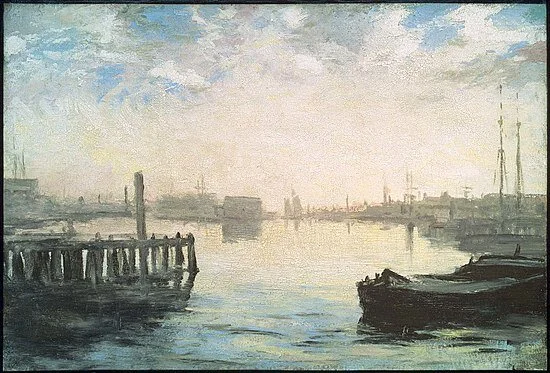'The port is near'
Gloucester Harbor ca. 1877, by William Morris Hunt
It is time to be old,
To take in sail:—
The god of bounds,
Who sets to seas a shore,
Came to me in his fatal rounds,
And said: “No more!
No farther shoot
Thy broad ambitious branches, and thy root.
Fancy departs: no more invent;
Contract thy firmament
To compass of a tent.
There’s not enough for this and that,
Make thy option which of two;
Economize the failing river,
Not the less revere the Giver,
Leave the many and hold the few.
Timely wise accept the terms,
Soften the fall with wary foot;
A little while
Still plan and smile,
And,—fault of novel germs,—
Mature the unfallen fruit.
Curse, if thou wilt, thy sires,
Bad husbands of their fires,
Who, when they gave thee breath,
Failed to bequeath
The needful sinew stark as once,
The Baresark marrow to thy bones,
But left a legacy of ebbing veins,
Inconstant heat and nerveless reins,—
Amid the Muses, left thee deaf and dumb,
Amid the gladiators, halt and numb.”
As the bird trims her to the gale,
I trim myself to the storm of time,
I man the rudder, reef the sail,
Obey the voice at eve obeyed at prime:
“Lowly faithful, banish fear,
Right onward drive unharmed;
The port, well worth the cruise, is near,
And every wave is charmed.”
“Terminus,’’ by Ralph Waldo Emerson (1803-1882) the American essayist, lecturer, philosopher, and poet who led the New England-based transcendentalist movement of the mid-19th Century.
